i
The Story
of him who knew the most of all men know;
who made the journey; heartbroken; reconciled;
who knew the way things were before the Flood,
the secret things, the mystery; who went
to the end of the earth, and over; who returned,
and wrote the story on a tablet of stone.
He built Uruk. He built the keeping place
of Anu and Ishtar. The outer wall
shines in the sun like brightest copper; the inner
wall is beyond the imagining of kings.
Study the brickwork, study the fortification;
climb the great ancient staircase to the terrace;
study how it is made; from the terrace see
the planted and fallow fields, the ponds and orchards.
This is Uruk, the city of Gilgamesh
the Wild Ox, son of Lugalbanda, son
of the Lady Wildcow Ninsun, Gilgamesh
the vanguard and the rear guard of the army,
Shadow of Darkness over the enemy field,
the Web, the Flood that rises to wash away
the walls of alien cities, Gilgamesh
the strongest one of all, the perfect, the terror.
It is he who opened passes through the mountains;
and he who dug deep wells on the mountainsides;
who measured the world; and sought out Utnapishtim
beyond the world; it is he who restored the shrines;
two-thirds a god, one-third a man, the king.
Go to the temple of Anu and Ishtar:
open the copper chest with the iron locks;
the tablet of lapis lazuli tells the story.
ii
There was no withstanding the aura or power of the Wild
Ox Gilgamesh. Neither the father's son
nor the wife of the noble; neither the mother's daughter
nor the warrior's bride was safe. The old men said:
"Is this the shepherd of the people? Is this
the wise shepherd, protector of the people?"
The gods of heaven listened to their complaint.
"Aruru is the maker of this king.
Neither the father's son nor the wife of the noble
is safe in Uruk; neither the mother's daughter
nor the warrior's bride is safe. The old men say:
'Is this the shepherd of the people? Is this
the wise shepherd, protector of the people?
There is no withstanding the desire of the Wild Ox.' "
They called the goddess Aruru, saying to her:
"You made this man. Now create another.
Create his double and let the two contend.
Let stormy heart contend with stormy heart
that peace may come to Uruk once again."
Aruru listened and heard and then created
out of earth clay and divine spittle the double,
the stormy-hearted other, Enkidu,
the hairy-bodied wild man of the grasslands,
powerful as Ninurta the god of war,
the hair of his head like the grain fields of the goddess,
naked as Sumuqan the god of cattle.
He feeds upon the grasslands with gazelles;
visits the watering places with the creatures
whose hearts delight, as his delights, in water.
iii
One day a hunter came to a watering place
and saw Enkidu; he stood expressionless,
astonished; then with his silent dogs he went
His face was as one estranged from what he knows.
He opened his mouth and said to his father: "Father,
I saw a hairy-bodied man today
at the watering place, powerful as Ninurta
the god of war; he feeds upon the grasslands
with gazelles; he visits the watering places
with the beasts; he has unset my traps and filled
my hunting pits; the creatures of the grasslands
get away free. The wild man sets them free.
Because of him I am no longer a hunter."
His father said: "Go to Uruk and there
present yourself to Gilgamesh the king,
who is the strongest of all, the perfect, the terror,
the wise shepherd, protector of the people.
Tell him about the power of the wild man.
Ask him to send a harlot back with you,
a temple prostitute, to conquer him
with her greater power. When he visits the watering place,
let her show him her breasts, her beauty, for his wonder.
He will lie with her in pleasure, and then the creatures,
the gazelles with whom he feeds upon the grasslands,
and the others with whom he visits the watering places,
will flee from him who ranged the hills with them."
So the hunter went to Gilgamesh in Uruk
and told him about the power of the wild man,
and how he had unset the traps and filled
the pits, so that the creatures got away free.
The lord of Uruk said to the hunter then:
"When you return, a temple prostitute
will go with you and with her beauty conquer
the wild man. He will lie with her and then
the gazelles with whom he feeds upon the grasslands,
and the others with whom he visits the watering places,
will flee from him who ranged the hills with them."
iv
The harlot and the hunter traveled together,
taking three days, back to the watering place.
For three more days they waited, and finally
Enkidu came with the creatures that love the water,
the gazelles and the others, so as to drink their fill.
The temple prostitute looked at him, Enkidu,
the hairy-bodied wild man of the grasslands,
the hair of his head like the grain fields of the goddess,
naked as Sumuqan the god of cattle.
"That is Enkidu, Shamhat, show him your breasts,
show him your beauty. Spread out your cloak on the ground.
Lie down on it. The wild man will look at you.
Show him your body. The hairy-bodied man
will come to you and lie down on you; and then
show him the things a woman knows how to do.
The gazelles and with them all the other creatures
will flee from him who ranged the hills with them."
And so the harlot, Shamhat, showed him her breasts,
showed him her body. The hairy-bodied man
came over to her, and lay down on her, and then
she showed him the things a woman knows how to do.
For seven days Enkidu in his wonder
lay with her in pleasure, and then at last
went to seek out the company of the creatures
whose hearts delight in feeding upon the grasslands,
and visiting the watering places, and
ranging the hills. But seeing him, they fled.
The creatures were gone, and everything was changed.
His body that loved to range the hills was now
unable to follow; but in the mind of the wild man
there was beginning a new understanding.
Bewildered, he turned, and sought out the company
of the temple prostitute. He sat down beside her,
and looked into her face, and listened to her:
"Enkidu, now you are beautiful as a god.
Why do you seek the company of beasts?
Come with me to the city, to Uruk,
to the temple of Anu and the goddess Ishtar.
Gilgamesh is the ruler, the strongest of all,
the terror. The aura and power of his desire
can be withstood by no one." Then Enkidu,
whose heart was beginning to know about itself
and longed for a companion, cried aloud:
"Take me to Uruk, the city of Gilgamesh,
whose aura and power cannot be withstood.
I will cry out in Uruk, challenging him:
'It is I, Enkidu. The strength of the wild man
born in the wilderness cannot be withstood.' "
The temple prostitute replied: "Come then
to Uruk, where the processions are, and music,
and let us go together through the dancing
to the palace hall where Gilgamesh presides,
the favorite of the gods, the beautiful,
strongest of all, the terror, the most desired.
Look at his radiant face, the favorite
of Shamash and Enlil, Ea, and Anu.
While you were grazing beastlike with gazelles,
before your mind had any understanding,
his mind, a gift to the gifted of the gods,
had a dream of you before you knew of him.
In the early morning Gilgamesh arose
and told his mother his dream: 'I had a dream.
A star fell from the heavens, a meteorite,
and lay on the empty plain outside Uruk.
The men and women came and wondered at it.
I strove with it to lift it but could not.
I was drawn to it as if it was a woman.'
All-knowing Rimat-Ninsun spoke to him,
the lord of Uruk, Gilgamesh. His mother,
All-knowing Rimat-Ninsun, spoke and said:
"The star that fell from the heavens, the meteorite
that lay on the empty plain outside Uruk,
the star you could not lift when you strove with it,
the star you were drawn to as if drawn to a woman,
is the strong companion, powerful as a star,
the meteorite of the heavens, a gift of the gods.
That you were drawn to it as if drawn to a woman
means that this companion will not forsake you.
He will protect and guard you with his life.
This is the fortunate meaning of your dream.'
Then Gilgamesh the lord of Uruk said:
'May the dream as you interpret come to pass.' "
The temple prostitute thus told the tale.

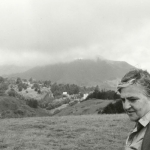
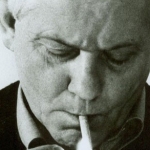
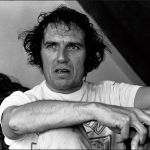
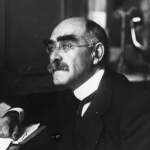
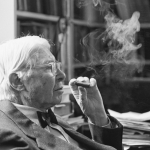


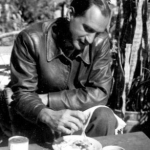
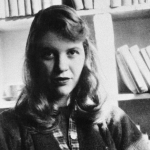

Comment form: